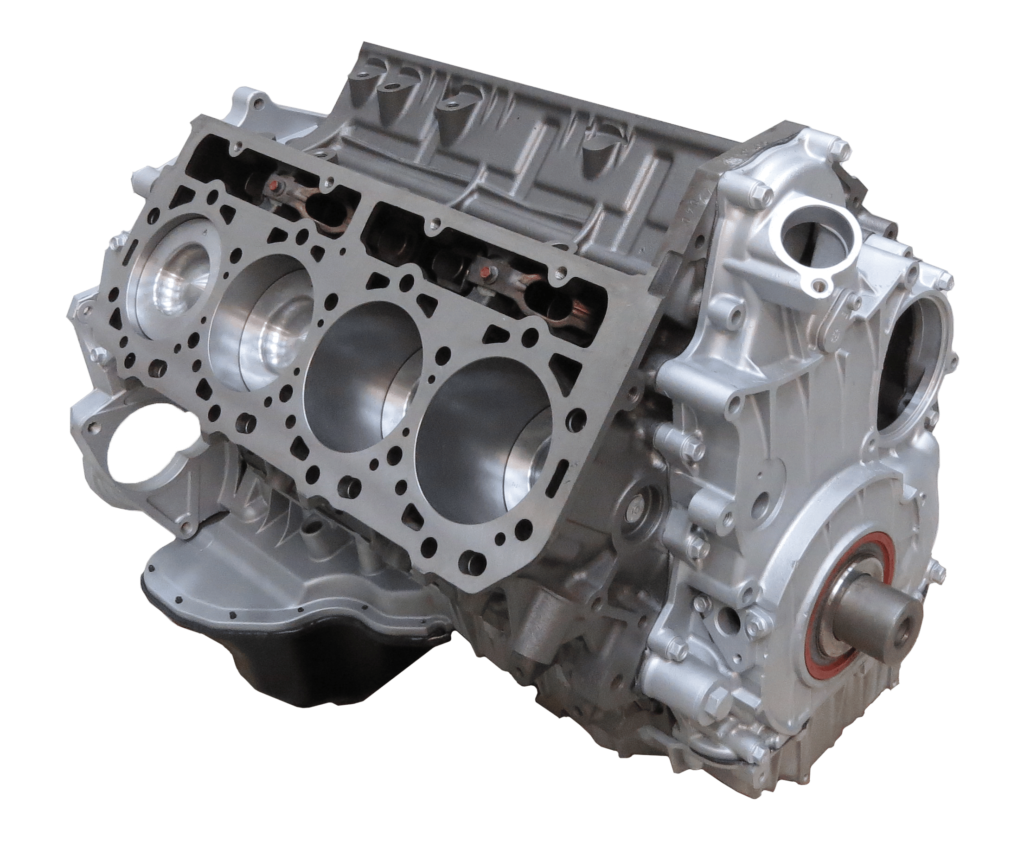Day in and day out, your diesel works hard. Show your appreciation by giving it the best maintenance and repair from Gary’s Automotive in Langley. Since 1985, our expert technicians have been providing premium service throughout White Rock. No matter if your truck has a Powerstroke, Cummins, or Duramax, we’ll get it in tip-top shape. Plus, we also work magic on diesel-powered cars and SUVs.
For the most part, American made diesel engines used to be indestructible. But that’s no longer the case. The addition of emissions equipment in the mid-2000s has led to a rash of problem engines, such as the 6.0L Powerstroke. Sooner or later, your diesel is going to need repair. When that time comes, visit Gary’s Auto Repair Langley. Whether it’s a cab-off engine job or simple glow plug replacement, we’ve got you covered.
Some diesel repair services we perform include:
Bring your Powerstroke, Cummins, or Duramax to us. We’ll fix it right the first time.
Since diesel engines don’t have spark plugs, they don’t need a traditional “tune-up”. But they do require plenty of other routine maintenance. In fact, oil-burners generally need more service than their gasoline counterparts. And because diesels operate under extreme conditions (towing, hauling, etc.) that service needs to be more frequent.
Gary’s Auto Repair Langley is an excellent dealer alternative for routine maintenance and oil changes. Our professional technicians will treat your truck to the finest service using only OEM and OEM-approved parts and products.
Some routine diesel maintenance procedures we perform include:
Induction services
Injector cleaning
Diesel exhaust fluid (urea) refilling
Fluid exchanges (engine oil, transmission, coolant, etc.)
Filter replacement (air, fuel/water separator)
Interval services (30K, 60K, 90K, etc.)
Regular maintenance is cheap insurance. It’s also the best way to make your diesel-powered vehicle last a lifetime.

Powerful diesel engines are backed by a stout powertrain and sturdy chassis. At Gary’s Automotive in Langley, we take care of all repairs from bumper to bumper. That means we don’t just take care of what’s under the hood – we take care of everything.
Some chassis and drivetrain repair services we perform include:
Brakes
Electrical
Steering and suspension
Transmission and drivetrain
Heating and air conditioning
Tire service and replacement
From a simple brake job to heavy-duty transmission replacement, there’s nothing we can’t handle.
Many shops are afraid to work on diesels because they’re different. But that’s never stopped the pros at Gary’s Auto Repair Langley. We’re passionate about anything that’s got an engine and four wheels. It’s this devotion that has earned our diesel techs a loyal following throughout Langley and the surrounding area. Stop by today to experience the difference for yourself.
Fuel Type:
Diesel Engine: Diesel engines use diesel fuel, which is less refined and has a higher energy density than gasoline. Diesel fuel contains more energy per gallon/liter and has a higher flashpoint.
Gasoline Engine: Gasoline engines use gasoline (petrol), which is a more refined and lighter fuel compared to diesel. Gasoline has a lower energy density and a lower flashpoint.
Ignition Method:
Diesel Engine: Diesel engines operate on the principle of compression ignition. Air is compressed in the cylinder, which generates enough heat to ignite the injected diesel fuel.
Gasoline Engine: Gasoline engines use spark ignition. A spark plug creates a spark to ignite the air-fuel mixture in the cylinder.
Compression Ratio:
Diesel Engine: Diesel engines typically have higher compression ratios than gasoline engines. This high compression contributes to their efficiency and power output.
Gasoline Engine: Gasoline engines generally have lower compression ratios compared to diesel engines.
Efficiency:
Diesel Engine: Diesel engines are known for their higher thermal efficiency. They extract more energy from each unit of fuel due to the higher compression ratio, resulting in better fuel efficiency.
Gasoline Engine: Gasoline engines tend to have lower thermal efficiency compared to diesel engines.
Torque and Power Curve:
Diesel Engine: Diesel engines produce high torque at low RPM (revolutions per minute), making them well-suited for heavy-duty applications and towing. They often lack the high RPM power seen in gasoline engines.
Gasoline Engine: Gasoline engines typically have a broader power band and produce more power at higher RPM, which is advantageous for acceleration and high-speed performance.
Emissions:
Diesel Engine: Historically, diesel engines have been associated with higher emissions of nitrogen oxides (NOx) and particulate matter. Modern diesel engines use advanced emission control systems to reduce these pollutants.
Gasoline Engine: Gasoline engines generally produce fewer NOx and particulate emissions compared to older diesel engines.
Noise and Vibration:
Diesel Engine: Diesel engines tend to be noisier and have more vibrations due to the higher compression forces and ignition method.
Gasoline Engine: Gasoline engines are generally quieter and smoother in operation.
Fuel Economy:
Diesel Engine: Diesel engines often offer better fuel economy, especially in vehicles with constant-speed, highway driving.
Gasoline Engine: Gasoline engines are typically used in lighter vehicles and offer competitive fuel economy in city driving and at lower speeds.
Maintenance:
Diesel Engine: Diesel engines are known for their durability and longevity but may require specialized maintenance due to their unique characteristics, such as oil changes.
Gasoline Engine: Gasoline engines are generally easier and less expensive to maintain.
The choice between a diesel engine and a gasoline engine depends on the intended use, vehicle type, and specific requirements, such as towing capacity, fuel economy, and emissions regulations. Each type has its advantages and disadvantages, and advancements in technology continue to narrow the performance and efficiency gaps between them.